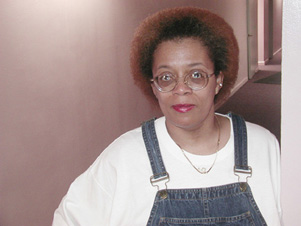There are some major flaws in our criminal justice system. These flaws result in innocent people going to prison. It is the ultimate miscarriage of justice — taking away the freedom of a factually innocent person while also allowing the guilty person to remain free.
There are a number of reasons for why innocent people get found guilty. The National Registry of Exonerations has identified six main causes:
- Perjury or False Accusation
- Inadequate Legal Defense
- False or Misleading Forensic Evidence
- Official Misconduct
- False Confession
- Mistaken Witness Identification
False Confessions
Out of 3,160 exonerations tracked by the The National Registry of Exonerations, 370 or 11% listed False Confessions as a contributing factor in the wrongful conviction.
When it comes to the issue of forcing out a confession, has our criminal justice system evolved much from the days of the Salem Witch Trials, during which about 50 women were coerced into confessing to have performed witchcraft? Or are there still remnants of such methods of forced confessions in existence today?
Why do innocent persons make false confessions to incriminate themselves?
The reasons go all across the spectrum from threat to torture. False confessions can happen when police interrogation tactics are physically or mentally tortuous, exhausting, or seemingly never-ending. A person may make a false confession when police suggest to the defendant that he or she “did it” using “what if” scenarios. Then there are tactics like, “we already have evidence against you,” or “so-and-so said you did it.”
Sometimes the innocent defendant may have a mental impairment or be under the intoxication of alcohol or drugs. They may confess for fear of violence, or the threat of a long prison sentence or simply the suggestion that he or she “will be able to go home” after confessing. Or the accused may believe that if they cooperate with the police they can be released after confessing and proving their innocence later.
False Confessions Destroy Real Lives
Take the case of Paula Gray and the Ford Heights Four, who were convicted of the 1978 abduction and murder of Lawrence Lionberg and Carol Schmal and the rape of Ms. Schmal.
Paula Gray confessed to a role in a crime she knew nothing about, sending herself and four innocent men to prison, two of them to death row.
Police interrogated Gray, who was only 17 and borderline mentally retarded, over two nights in motels before she confessed. Then she was taken before a grand jury, where she testified that she had been present when Kenneth Adams, Verneal Jimerson, Willie Rainge, and Dennis Williams repeatedly raped Ms. Schmal and then shot both victims to death.
This coerced confession was a central piece of evidence in the conviction of the men and herself.
All five spent many years in prison until they were exonerated by DNA evidence.
Read more at: https://innocenceproject.org/false-confessions-recording-interrogations/
Our Clients are entitled to a Bill of Rights which states:
- Our clients have the right to expect, we will be proactive in communication. You will hear it from us first. We will return all phone calls, texts and emails promptly.
- Our clients have the right to expect plain speaking, straight shooting. No B. S.
- Our clients have the right to expect us to do it right the first time, every time.
- Our clients have the right to expect us to be on time and professionally prepared for all court appearances, and all meetings.
- Our clients have the right to expect that they will be fully informed at all times.
This is our promise to you. Call today to get us on your side: (717) 657-3900.


